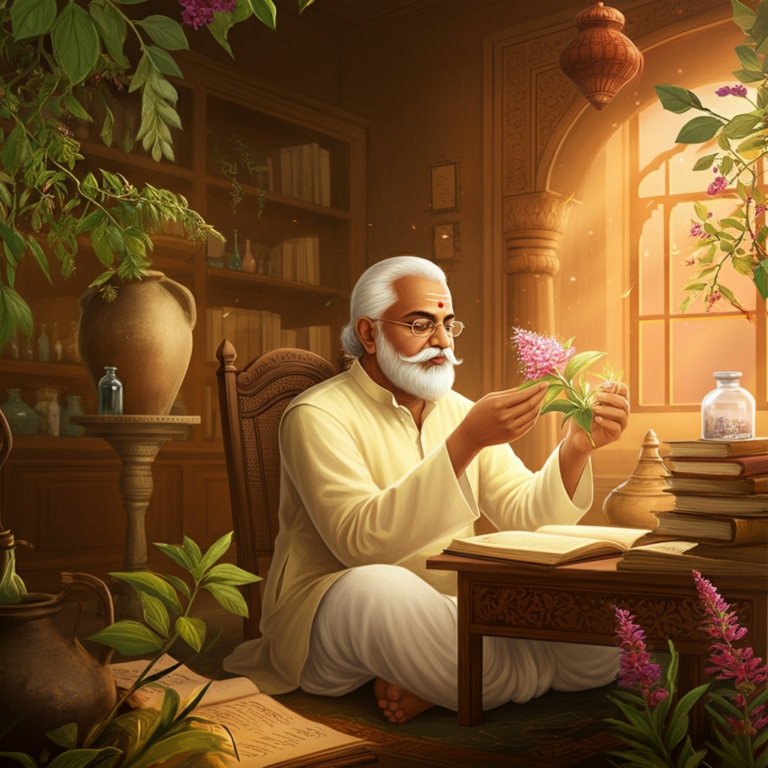Pharmacognosy—an essential discipline in the field of pharmacy—bridges the gap between traditional herbal knowledge and modern medicine development. By studying medicinal plants and their derivatives, pharmacognosy has shaped healthcare worldwide, with India playing a pivotal role due to its rich history of Ayurveda and herbal medicine. But who is the father of Indian pharmacognosy, and what are his contributions to this fascinating medical science?
What is Pharmacognosy and Why Does It Matter?
Pharmacognosy is a branch of pharmaceutical sciences that focuses on studying natural substances, particularly those derived from plants, animals, and minerals, and their uses in medicine. It forms the foundation for understanding how many modern drugs have evolved from traditional remedies.
Its importance lies in areas such as:
- Drug Discovery: Understanding the chemical composition of herbs helps in developing life-saving pharmaceuticals.
- Standardization of Herbal Products: Identifying and extracting bioactive components ensures the safety and efficacy of herbal formulations.
- Preserving Indigenous Knowledge: Pharmacognosy protects ancient wisdom by documenting and investigating the medicinal applications of plants.
India, one of the cradles of herbal medicine, has greatly contributed to pharmacognosy. The scientific exploration of medicinal plants in the country has been significantly advanced by key figures over the years. Among them, we honor the father of Indian pharmacognosy for laying the foundation for this academic discipline.
The History of Pharmacognosy and India’s Role
The principles underpinning pharmacognosy stem from ancient medicine, much of which was plant-based. Texts from various civilizations, including the Egyptian “Ebers Papyrus” or India’s “Atharva Veda,” documented the therapeutic value of plants thousands of years ago. These early records became steppingstones for systematic scientific studies into drugs derived from natural sources.
India’s Unique Legacy in Herbal Medicine
- Ayurveda has been an influential system of medicine for over 3,000 years, relying heavily on the curative potential of plants.
- Ancient texts like the Charaka Samhita and Sushruta Samhita detail medicinal uses of plants that are still being studied today.
While India had a longstanding tradition of herbal medicine, the field of pharmacognosy as a scientific discipline started to take shape in the 20th century. Some pioneering Indian scholars contributed immensely to the systematic study of medicinal plants.
Meet the Father of Indian Pharmacognosy
The title of “Father of Indian Pharmacognosy” is bestowed upon Dr. V. Krishna Acharya, a visionary in natural drug research and education. Dr. Acharya dedicated his career to laying the groundwork for pharmacognosy as a structured scientific field in India.
Biography and Contributions of Dr. V. Krishna Acharya
- Early Life and Education:
Dr. Acharya displayed an insatiable curiosity about natural sciences from an early age. After earning his degree in pharmacy, he pursued advanced studies in pharmacognosy, specializing in plant-based therapeutics.
- Academic Achievements:
- His groundbreaking research focused on analyzing the phytochemical properties of Indian medicinal plants.
- Dr. Acharya authored several seminal textbooks that remain foundational for pharmacognosy students today.
- His rigorous methodologies became standard practices for studying the medicinal properties of plants.
- Research on Indian Flora:
Dr. Acharya systematically cataloged the medicinal uses of Indian plants, encouraging their study beyond Ayurveda. He emphasized extracting, isolating, and understanding bioactive compounds to corroborate traditional claims with scientific data.
- Legacy:
- He was instrumental in establishing pharmacognosy departments in Indian universities.
- His focus on blending traditional knowledge with modern analytical techniques helped bridge the gap between Ayurveda and allopathy.
Impact of His Work on Modern Pharmacology
Dr. Acharya’s work has profoundly influenced pharmacognosy and led to the discovery and synthesis of countless drugs inspired by nature. Today, pharmaceutical giants continue to rely on these principles for developing drugs, validating the relevance of his legacy.
Why Understanding Medicinal Plants Matters
Pharmacognosy plays a crucial role in the creation of modern medicine. Nature remains an unparalleled source of remedies, with countless plant-based compounds forming the basis of treatments for diseases.
How Medicinal Plants Shape Drug Development
Here are some examples from pharmacognosy:
- Curcumin (from turmeric):
- Used widely for its anti-inflammatory and antioxidant properties.
- Has been incorporated into supplements to combat arthritis and promote immune health.
- Reserpine (from Rauwolfia serpentina):
- Traditionally used for mental health disorders.
- Now formulated into modern-day medications for hypertension and anxiety.
- Ashwagandha:
- A staple in Ayurvedic medicine for stress relief.
- Studied extensively as an adaptogen with clinically proven benefits in reducing cortisol levels.
Dr. Acharya’s documentation of such plants laid the groundwork for exploring their pharmacological potential, ensuring they found a place in modern therapeutic schemes.
Notable Indian Medicinal Plants and Their Uses
India boasts an impressive catalog of medicinal plants. Here are a few examples that highlight the country’s rich biodiversity and expertise in natural medicine:
- Neem (Azadirachta indica):
- Traditionally used for skin conditions and its antimicrobial properties.
- Incorporated into antiseptic creams and oral hygiene products.
- Tulsi (Ocimum sanctum):
- Revered in Ayurveda for boosting immunity and treating respiratory conditions.
- Extensively used in herbal teas and supplements.
- Guduchi (Tinospora cordifolia):
- Known for its adaptogenic and immune-boosting effects.
- Utilized in treatments for autoimmune diseases.
- Amla (Indian Gooseberry):
- Packed with Vitamin C and antioxidants.
- Used in remedies for cardiovascular health and digestion.
By continuing to study these plants, researchers and pharmacists ensure that traditional medicine contributes meaningfully to health sciences.
Preserving Knowledge and Advancing the Future
Dr. V. Krishna Acharya’s efforts underscore the importance of cataloging traditional wisdom and transforming it into scientific breakthroughs. His pioneering work remains crucial for a world increasingly focused on sustainable and plant-based therapeutics.
To this day, pharmacognosy offers promising avenues for drug discovery, particularly as global pharmaceutical companies invest in identifying new compounds from nature.
How You Can Explore Pharmacognosy
Whether you’re a pharmacist, medical student, or herbal medicine enthusiast, you can be part of this exciting field. Learn more about pharmacognosy through textbooks authored by Dr. Acharya or explore research papers on the pharmacological properties of medicinal plants.
